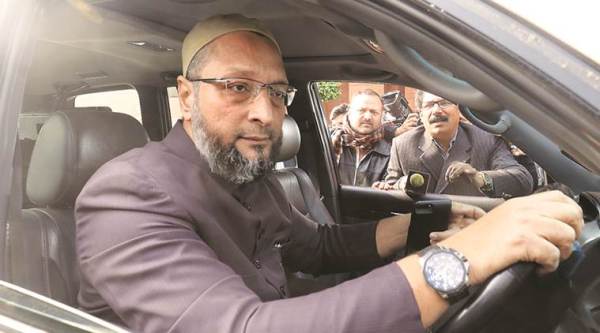 Lok Sabha MP from Hyderabad Asaduddin Owaisi. The SC Thursday declining setting up a larger bench for a relook of its 1994 verdict. (File Photo)
Lok Sabha MP from Hyderabad Asaduddin Owaisi. The SC Thursday declining setting up a larger bench for a relook of its 1994 verdict. (File Photo)
The Supreme Court’s decision, declining to set up a larger bench for a relook of its 1994 verdict which held that a “mosque is not an essential part of the practice of Islam” drew widely divergent reactions from different leaders of the Muslim organisations.
Welcoming the decision, Babri Masjid Action Committee convenor Zafaryab Jilani said that in clarifying the question of whether a mosque is integral to Islam the court has paved the way for an amicable settlement to the Babri dispute. Asaduddin Owaisi, the Lok Sabha MP from Hyderabad, however, contended that the verdict is among a long line of judgments attempting to deprive Indian Muslims their identity.
Jilani said: “The court clarified that the 1994 judgment was in a particular context and that the question is not relevant to the title suit. People are unnecessarily trying to create an impression that this has bearing on the upcoming hearing on Ayodhya. The court today clarified just that – it said the previous verdict has no relevance to the title suit.”
He said, “We are satisfied with the judgment; now the Ayodhya hearing can commence.”
Kamal Farooqui, member, All-India Muslim Personal Law Board (AIMPLB), on the other hand, said that “things have gone haywire” with Thursday’s decision. It was important for the Ayodhya hearing that the 1994 judgment be referred to a larger bench but since that did not happen, chances of the 2010 Allahabad High Court verdict being upheld seem “brighter than ever”, Farooqui said.
“The immediate implication of mosque not being an integral part of Islam is that there is no bar on the government acquiring the Babri Masjid land for its three-way division, as mandated by Allahabad High Court,” he said.
He said, “The Ismail Faruqui judgment did not go into religiosity of the matter, (and) that is why we had gone to court asking for that question to be clarified first. Now that it has been upheld, the danger is that it can be used for any religious institution. It also seems likely that the 2010 judgment would be upheld because the basis of that judgment was this (1994 verdict). I do not see any more legal options in front of us either.”
Emphasising that mosque is an integral part of Islam —- “the Quran says so, as does the Hadees” – Owaisi, a member of the executive committee of AIMPLB, said, “It would have been in the fitness of things for the matter to be referred to a larger bench. First they said beard is not integral to Islam, then they said triple talaq is not integral to Islam, now they say mosque is not integral to Islam. What is the Indian Muslim left with then?
He asked, “If masjid is not integral to Islam, are religious places of other religions integral to their religion?”
Referring to the Haryana Chief Minister’s recent remarks that namaz should be offered only in mosques, Owaisi asked, “Where does that place Manohar Lal Khattar?”